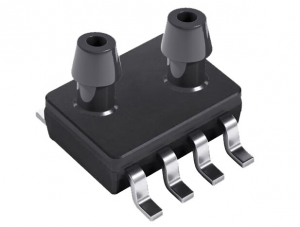Voltage sensors play a crucial role in electrical systems as they are responsible for measuring the electrical potential difference between two points. This measurement is essential for ensuring the safe and efficient operation of various electrical devices and systems. This article aims to provide an overview of voltage sensors, their working principles, types, and the significance of voltage sensing in electrical systems.
**Working Principles of Voltage Sensors**
Voltage sensors operate based on different working principles, including resistive, capacitive, and inductive methods. The most commonly used method is resistive voltage sensing, which involves the use of a voltage divider circuit. In this circuit, a known resistance is connected in series with the load, and the voltage across this resistance is measured using an analog-to-digital converter (ADC).
Capacitive voltage sensors rely on the principle of charge accumulation. When a voltage is applied across a capacitor, it stores a certain amount of charge proportional to the voltage. By measuring the charge stored, the voltage across the capacitor can be determined.
Inductive voltage sensors utilize the principle of electromagnetic induction. A changing magnetic field induces a voltage across a coil, which is then measured to determine the voltage.

Voltage Sensors
**Types of Voltage Sensors**
Voltage sensors are available in various types, each suitable for specific applications. Some common types include:
1. Resistive Voltage Sensors: These sensors utilize a voltage divider circuit and are widely used for general voltage measurements.
2. Capacitive Voltage Sensors: Suitable for high-frequency applications, capacitive sensors offer fast response times and high accuracy.
3. Inductive Voltage Sensors: Ideal for measuring both AC and DC voltages, inductive sensors are commonly used in power systems.
**Significance of Voltage Sensing in Electrical Systems**
Accurate voltage sensing is crucial in electrical systems due to the following reasons:
1. Safety: Voltage sensors play a crucial role in ensuring the safety of electrical systems by indicating overvoltage or undervoltage conditions. This information allows for prompt actions to prevent equipment damage, electrical hazards, or system failures.
2. Power Quality Monitoring: Voltage sensors enable the monitoring of power quality parameters such as voltage sags, swells, and harmonics. By detecting and analyzing these disturbances, corrective measures can be taken to maintain a stable power supply.
3. Energy Efficiency: Voltage sensors help in monitoring and controlling voltage levels in electrical systems, ensuring that devices operate within their optimal voltage range. This control promotes energy efficiency and extends the lifespan of electrical equipment.
4. Fault Detection: By monitoring voltage levels, voltage sensors can detect faults such as short circuits or open circuits. Early detection allows for timely repairs, minimizing downtime and avoiding potentially hazardous situations.
In conclusion, voltage sensors are vital components in electrical systems. They enable accurate voltage measurements, ensuring safety, power quality, energy efficiency, and fault detection. Understanding the working principles and types of voltage sensors is crucial for engineers and technicians working in the field of electrical systems.
 rongtech
rongtech






您好!Please sign in